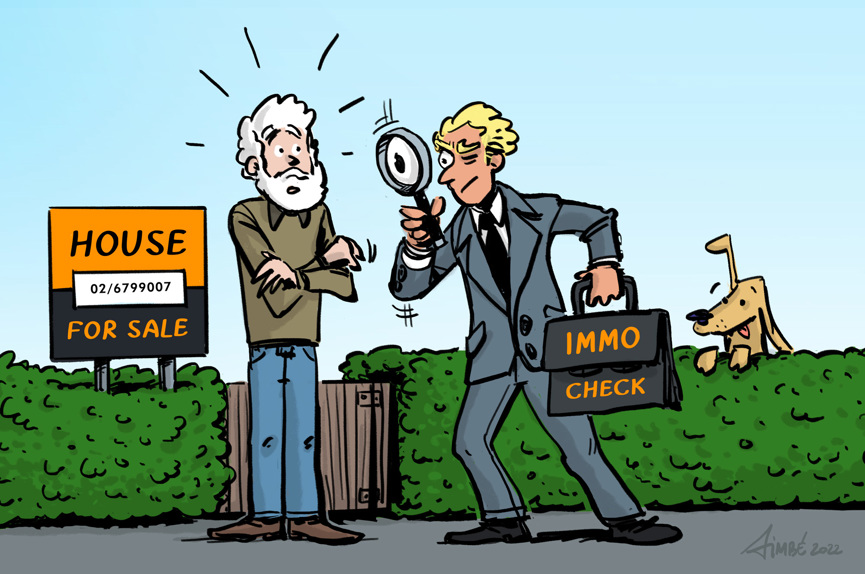- Real Estate, Renting and Co-ownership
- money laundering , the fight against money laundering , real estate agent , property manager , Anti-Money Laundering Law , purchase of real estate , sale of real estate , rent , transfer of real estate , Due diligence obligations , high risk factors , customer due diligence , law firm in Brussels , law firm in Belgium
As of 1 July 2022, a new anti-money laundering regulation for real estate agents has come into force.
This new regulation repeals the old anti-money laundering regulation of 2013. It does not introduce many new changes but gives a clearer picture of how real estate agents must comply with the obligations under the anti-money laundering law of 2017.

1. The scope of this regulation
Unlike the previous version, the new version of the regulations has a limited scope. Intermediary agents and property managers fall within the scope of this regulation. Property administrators also called "Syndics", on the other hand, are excluded.
Intermediary agents are real estate agents who provide assistance on behalf of their clients in connection with the purchase, sale, rent, exchange or transfer of real estate, real estate rights or business assets.
Property managers are real estate agents who develop management activities on behalf of owners of property in relation to real estate or real estate rights, other than the activity of a real estate agent.
The provisions of the anti-money laundering Law of 2017 and the Anti-money laundering regulations of 2022 apply to persons with whom the real estate agent enters into a contract in the context of:
- intermediation in the sale, purchase, exchange, rent or transfer of real estate, real estate rights or goodwill; a customer check is therefore required for buyers, tenants, transferees of goodwill, etc.;
- the management of property or property rights, other than the activity of a real estate agent.
Customer due diligence is also required for those who conclude a contract via a real estate agent for one of the above purposes without directly contracting with that agent (buyers, tenants, purchasers of a business, etc.).
If a client is in joint ownership, each joint owner must be checked.
An important addition to the new anti-money laundering regulation is the presumption that if the real estate agent makes adequate use of the anti-money laundering procedures and tools made available by the BIV/IPI (www.antiwitwas.be), he is presumed to meet the relevant obligations.
2. What do real estate agents have to comply with?
Real estate agents have all kinds of obligations imposed by the anti-money laundering law.
To achieve the objective, there are procedures and tools to apply, such as general due diligence obligations, customer due diligence, risk assessment obligations and enhanced due diligence.
2.1 Due diligence obligations
The regulation addresses a number of aspects relating to due diligence.
In particular, due diligence concerns the identification and verification of the identity, the identification of the characteristics of the customer and the purpose and nature of the business relationship or occasional operation envisaged.
The regulation provides more clarity as to exactly when the real estate agent must fulfil these due diligence obligations, namely
- in relation to its own clients (the person(s) with whom they enter into a real estate agent or property management contract): prior to entering into the contract ;
- with regard to buyers, tenants, purchasers of a business, i.e. the contracting party or parties and the planned transaction: before the completion of any legal act enabling the conclusion of this transaction, such as a preliminary agreement or a promise to sell or buy.
If the real estate agent is not able to take these due diligence measures or if the persons concerned or an agent or a beneficial owner is on the FPS Finance list of persons and entities to which freezing measures apply, he cannot continue his mission with his own client and the envisaged transaction cannot be carried out with the contracting party or parties.
Furthermore, the real estate agent must himself consider whether to inform the Financial Intelligence Processing Unit (CTIF-CFI).
Real estate agents involved in the same transaction may agree that one of them will perform all or part of these due diligence obligations on behalf of the others. However, even in this case, each real estate agent must still check his or her own contractors.
2.2 High risk factors related to clients and transactions
The regulation also defines high risk factors that apply to customers (natural and legal persons) and transactions (atypical transactions).
The regulation adds additional high risk factors to the list contained in annex 3 of the anti-money laundering law 2017.
2.3 Limitation of cash payments
The regulation addresses the limitation of cash payments.
Any sales agreement must specify the number of the bank account through which the deposit and/or the price will be transferred, as well as the identity of its holder(s). If the real estate agent does not have this information, a declaration by the parties in which this number is mentioned should be requested. If the buyer does not pay by debiting his account number, it must be stated how the purchase price will be financed.
Tip: as a real estate agent, always check whether the payments are actually coming from the specified account(s).
3. Conclusion
The new regulation does not introduce much that is new but expands on existing obligations in order to provide more clarity.
An important addition is that when the real estate agent uses the BIV/IPI's anti-money laundering tool, there is a legal presumption that he has complied with the obligations.
If you would like more information or wish to be assisted, please do not hesitate to contact our specialists at info@seeds.law or +32 (0)2 747 40 07.






